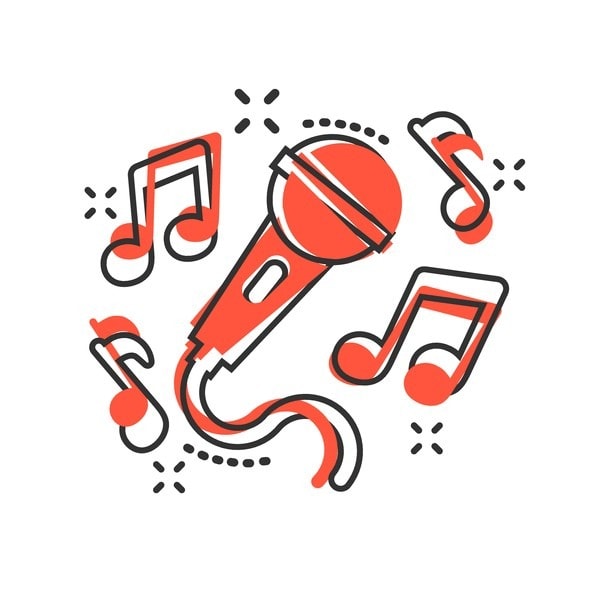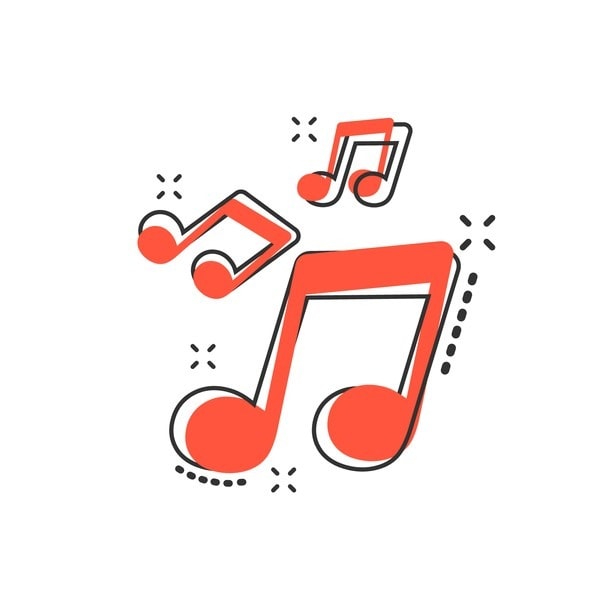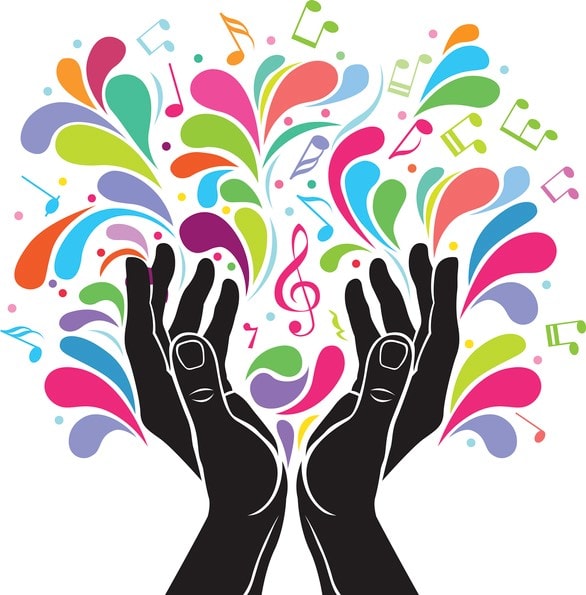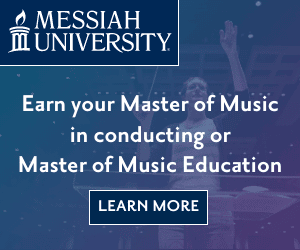/ News Posts / Arranging for Pedagogy
Arranging for Pedagogy
A Creative Approach to Repertoire in the Modern Music Room
By NAfME Member Heather Fortune
Presented Arranging For Pedagogy—A Creative Approach to Repertoire in the Modern Music Room at the “NAfME is ME!” 2022 NAfME National Conference in National Harbor, Maryland.
Many of us learned to play instruments in school during band or orchestra class. Maybe some of us played in a guitar class, or a modern band (rock band) class. There was often a jazz band option for some, but usually not all, instruments. Perhaps we didn’t question these choices, thinking, “This is just how it works.”
But what if we set those preset ensembles aside for a moment, and consider different ensemble models?
What if we decide to value exploration alongside mastery, creativity as well as replication, and community over competition?
When I arrived at my small urban school many years ago, I did not have enough students to flesh out any of the traditional ensembles mentioned above. So I set up one unified ensemble, mixing all abilities and instruments in one group.
Immediately, I was asked, Can I play guitar in this group? Eager to build a culture of music-making at the school, I answered, Sure!
Soon after, I was asked, Can we play jazz, pop, and other styles of music in addition to classical music? Again, my answer was, Yes!
And so I began arranging all of the music our ensembles play. At first, arranging was a simple survival strategy! But I now view arranging scores for students as a powerful pedagogical tool.
As an arranger, I can tweak each part to a “just right” level for each of my students, while ensuring that we are all participating in a satisfying whole. Setting up the conditions for everyone—anyone—to work together as a group and to sound good paves the way for my students to develop the skills and values needed for life-long musical engagement.
Question the Past, Imagine the Future
I reflected on the classical music field as I established the norms for my own ensembles. For professional classical musicians like me, our reality is fraught with contradictions. We witness world-class players struggle to make a living, and we hear fantastic musicians who fail to advance in orchestra auditions.
We suffer from what I call Toxic Precision, with many musical virtues and skills cast aside in favor of a sparkling yet ultimately limited skill set.
Have you ever asked a classical musician to improvise? Fear is often the immediate response! Where does that fear come from?
Most of us have little to no experience playing music that is not written down. We have practiced our whole lives so that no one ever hears us make a mistake. Toxic Precision has conditioned us to overvalue accuracy and to largely turn a blind eye towards creativity in our pursuit of musical goals.
In what ways do our school music rooms lay the groundwork for this preference for accuracy above all else?
In my classroom, the motto is Fearless, Not Flawless. Do you want to try something new? Go for it! I’m teaching students HOW to learn music, a skill they can deploy to fit their own changing motivations and preferences over a lifetime of musicianship.
Supercharge with Good Music Tech Tools
Once I have my arranged score in an XML file format, learning is supercharged! Online notation platforms host powerful practice parts, so my students can see, hear, and play along with their lines. This serves students who learn by ear equally alongside students who learn by reading.
For me, notation software and a DAW (Digital Audio Workspace) are both essential tools that I use every day. Students are often using these same tools to do creative work for our ensemble class.
And, importantly, your own musical creativity is activated and developed through arranging for student groups. You benefit richly by being generative, as do students when you ask them to undertake creative projects. Good music technology makes all of this accessible.
A Different Take on Mastery
After 17 years at my school, there is a strong culture of student musicianship. Students are songwriters, hip hop producers, youth orchestra members, jazz club leaders, and more. Students are building musicianship on their own terms in synergy with our work in class.
But what about mastery? And how will we transmit the traditional canon of high-level repertoire? How will students know which pieces they should revere?
Truth talk—though I learned how to play in band class, the music I have always enjoyed most comes from different traditions. In my ensembles I curate a year of multi-genre repertoire through dialogue with students, adding variety and texture to our concerts.
When students achieve traditional musical mastery, what do they do after graduation? The highest achieving student musicians, who ace competitions year after year, do not tend to pursue careers in music.
These students often share a common statement as adults: “I played seriously all through high school, but then I just stopped because there really wasn’t a way to keep playing without band or orchestra.”
Doesn’t that seem WRONG to you, Music Teacher? Don’t we want people to have musical lives? Isn’t that something they should take with them, after the investment of time, money, effort, and passion they devote to our classes?
We have an opportunity to rethink pedagogy in order to serve more types of music learners, pull from a wider array of traditions, and create meaningful connection and community in our ensembles.
By taking a creative approach to ensemble classes, we stand to give students the gift of life-long musicianship.
About the author:
 Heather Fortune chairs the Music Department and conducts high school and middle school instrumental ensembles at Friends Select School in Center City, Philadelphia. Since 2005, she has welcomed all players of all instruments at all levels into her groups. Her approach centers student voice and choice, utilizes good music technology to empower learners, and builds responsive classroom spaces in dialogue with students.
Heather Fortune chairs the Music Department and conducts high school and middle school instrumental ensembles at Friends Select School in Center City, Philadelphia. Since 2005, she has welcomed all players of all instruments at all levels into her groups. Her approach centers student voice and choice, utilizes good music technology to empower learners, and builds responsive classroom spaces in dialogue with students.
Heather is a prolific arranger of symphonies, pop classics, Latin grooves, jazz standards, and modern mind-benders. She advocates Arranging for Pedagogy, creating intentional learning experiences for students. As a conductor, Heather blends a multi-genre sensibility with craft and seeks to demystify musical language, shape clear and expressive phrases, and present wide-ranging programs. Cultivating community in the music room and putting on awesome concerts are her twin objectives.
A frequent presenter, Heather advocates for broad, progressive changes to instrumental music pedagogy in secondary schools. Her work with teachers includes curriculum development, repertoire creation, curated tech tools, strategic planning, leadership development, and advocacy. She aims to make school programs equitable, relevant, diverse, and responsive environments that build community and connection. A long-time Quaker educator, Heather is a graduate of the Friends Council on Education (FCE) Institute for Engaging Leadership, and she clerks the FCE Performing Arts Peer Network.
As a freelance flutist, Heather has performed with groups such as the Chamber Orchestra of Philadelphia, The Philly Pops, The Academy of Vocal Arts, and the Pennsylvania Ballet Orchestra, as well as with pop artists like Dr. Dog. She has written curriculum and worked as a Teaching Artist for the Philadelphia Orchestra. Heather grew up in Northern Virginia and holds Bachelor and Master degrees in Flute Performance from Boston University. She studied flute with Lois Wynn, Doriot Anthony Dwyer, Carol Wincenc, and Jacques Zoon.
Heather lives near the Art Museum in Philadelphia with her family, which includes a jazz musician and a precocious girl of many talents.
Did this blog spur new ideas for your music program? Share them on Amplify! Interested in reprinting this article? Please review the reprint guidelines.
The National Association for Music Education (NAfME) provides a number of forums for the sharing of information and opinion, including blogs and postings on our website, articles and columns in our magazines and journals, and postings to our Amplify member portal. Unless specifically noted, the views expressed in these media do not necessarily represent the policy or views of the Association, its officers, or its employees.
September 21, 2022. © National Association for Music Education (NAfME.org)
Published Date
September 21, 2022
Category
- Repertoire
Copyright
September 21, 2022. © National Association for Music Education (NAfME.org)






